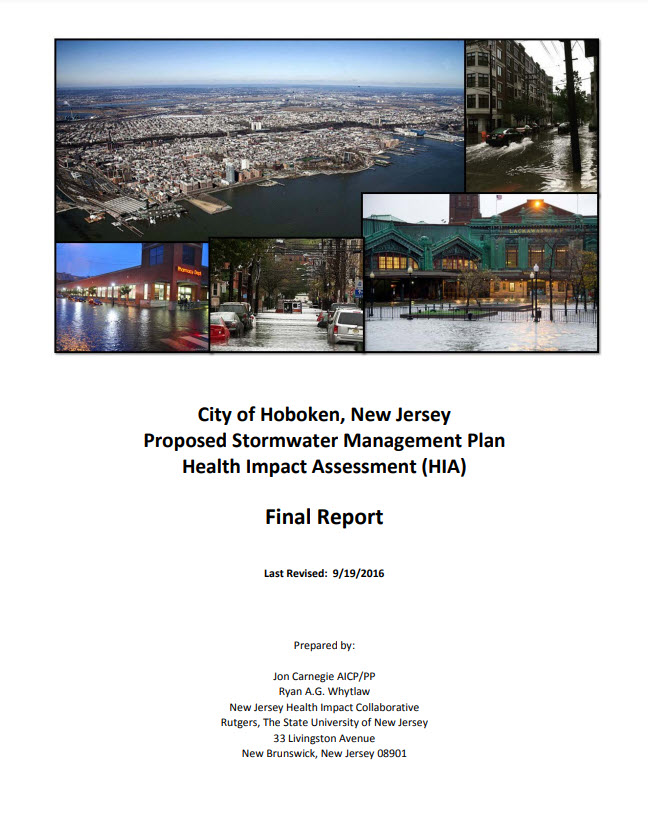Hurricane Sandy made landfall near Atlantic City, New Jersey on October 29, 2012. The storm battered the State with hurricane force winds and record storm surge; resulting in 34 fatalities and damage in excess of an estimated $60 billion in property, infrastructure and related economic losses. A significant proportion of these damages were sustained in coastal areas in the northern and central parts of the State, including the City of Hoboken, located along the Hudson River in Hudson County, New Jersey. The human health impacts of Hurricane Sandy were significant and continue today, more than three years after the storm.
There are a multitude of decisions made by jurisdictions, government agencies, and individuals as part of disaster recovery efforts in the immediate aftermath of the storm and in the months and years that follow. Virtually every decision made in the disaster recovery process has the potential to impact human health. This Health Impact Assessment (HIA) examines the potential positive and negative health consequences of implementing green infrastructure-based stormwater management strategies to address chronic flooding and combined sewer system (CSS) back-ups and overflows in the City of Hoboken.
The geographic scope of the HIA included all neighborhoods in the city; however, special attention was given to the areas of the city most impacted by repetitive flooding and CSS back-ups and overflows. These areas include several neighborhoods in the low-lying western part of Hoboken. Although virtually every city resident is impacted by flooding in some way, within the parts of the city most frequently flooded, low-income individuals and families, older adults, and persons with disabilities were considered to be particularly vulnerable to the negative impacts of flooding and its associated health effects.
